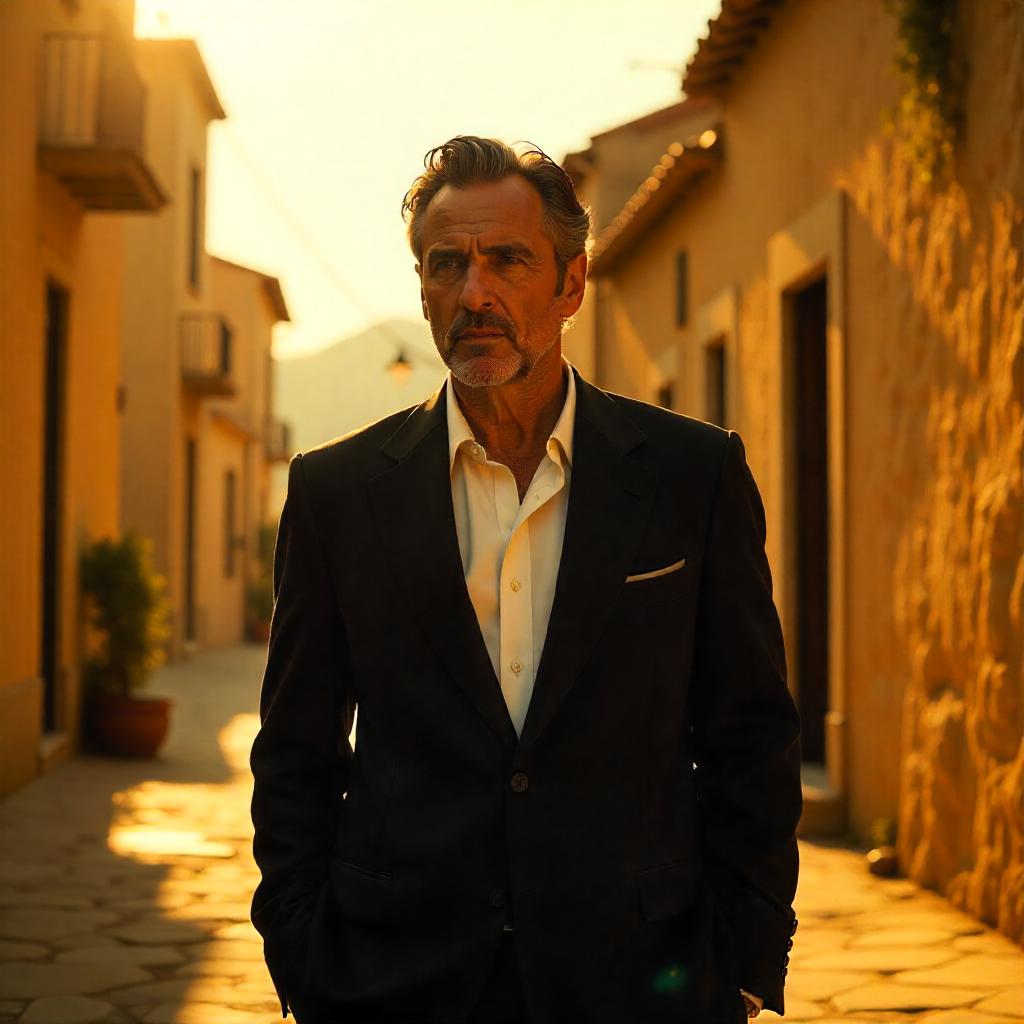The moment Sicilian blood oranges burst at Connie’s wedding, the underground empire of the Corleone family reveals its dual facets of sanctity and violence. Francis Coppola uses the language of the operatic camera to sublimate the power games of the New York mafia into the primitive rituals of capitalist society. The Godfather series is by no means a simple crime genre, but a modern apocalypse that dissects the essence of power with the veneer of a family epic.
Sacrifice Ceremony on the Altar of Patriarchy
The red velvet curtains of the Godfather’s study are in fact the curtains of the Ark of the Covenant that isolate the secular from the sacred. When the undertaker kisses the back of Don Corleone’s hand, the Sicilian immigrant completes his complete defection from capitalist legalism – replacing the social contract with family ethics, and replacing legal obligations with human debt. In the classic image of Vito Corleone stroking a cat, power displays a warring tenderness: the Persian cat’s fluff traced by his fingertips shares the biorhythms of absolute authority with the knuckles tapping on the tabletop during decision-making.
A montage collage of baptism scenes melds religious redemption and violent cleansing into a two-faced idol of changing power. When Michael answers the question “Do you renounce Satan?” in a Sicilian church, the blood-washing cut into the scene is not a break in the narrative, but a manifestation of the nature of power. Pacino’s trembling eyelids are compounded by the baby’s cries, and the holy water and the blood reach an eerie sacramental isomorphism in the narrative space and time. This ritualized violence culminates in the scene where Sonny is shot into a sieve by random gunfire: the shattered trajectory of the glass at the toll booth is akin to the broken crown of the power inheritance ceremony.
The Sicilian Translation of Capital Logic
The history of the olive oil empire’s fortunes is in fact the ethical retrofitting of capitalism by immigrant groups. Don Corleone transformed the Mafia’s “protection fee” system into a pre-modern personal shelter, and used the patriarchal system of the Sicilian countryside to fight against the contractual spirit of Wall Street. When he collapses in front of the orange stand, the tumbling citrus becomes the crushed remnants of patriarchy in the process of modernity. Michael’s cleansing of the family estate marks the Mafia’s metamorphosis from feudal ethics to corporate governance – boards of directors replace family meetings, lawyers replace warlords, and violence is packaged as a necessary cost of capital expansion.
Coppola’s photographic aesthetic of contrasting light and dark alludes to the symbiotic relationship between capital and violence. Michael witnesses the outbreak of the revolution from the shadows of a Cuban hotel terrace, and the flickering of the neon sign “HAVANA” behind him resembles the eerie pulse of the flow of capital. When he tells the history of his family’s development in front of a stone house in Sicily, the figure outlined in backlight blends with the thousand-year-old ruins behind him, revealing that all primitive accumulation of capital is inevitably stained with pre-modern dirt and blood.
The Entropic Dilemma of Power Aesthetics
The deepening shadow of the Godfather’s study measures the moral loss in the intergenerational transfer of power. The warm yellow halo outside the window during Vito’s reign changes to a cold blue overhead light in Michael’s time, and this change in lighting implies a loss of temperature in the ethics of power. When Michael witnesses Fredo’s death in the reflection of the lake, the shattered light cuts his face into a puzzle of moral dilemmas – an ultimate confrontation between the natural rhythm of the lake and the linear logic of power.
The death montage at the end of the movie is Coppola’s ultimate verdict on the destiny of capitalism. The dove that flew when Michael’s daughter was shot forms a cruel closed loop with the dove at the wedding forty years ago, proving that all poetics of power will eventually lead to entropic silence in a cycle of violence. When the dying Godfather falls alone in the Sicilian courtyard, the dust raised floats with the indigestible ethical detritus of capitalism – the ashes that all empire builders will eventually swallow.
The turnover of the three generations of Corleone family godfathers is in fact the complete metabolic cycle of the aesthetics of capitalist power. From Vito’s ethical community to Michael’s empire of reason to Vincent’s reign of nothingness, this Sicilian family has spent fifty years reenacting the four hundred years of alienation of Western civilization. As the end credits rise, we finally understand the white dove that always hovers – it is both the messenger of violence and the doomed resting place in all poems of power.
